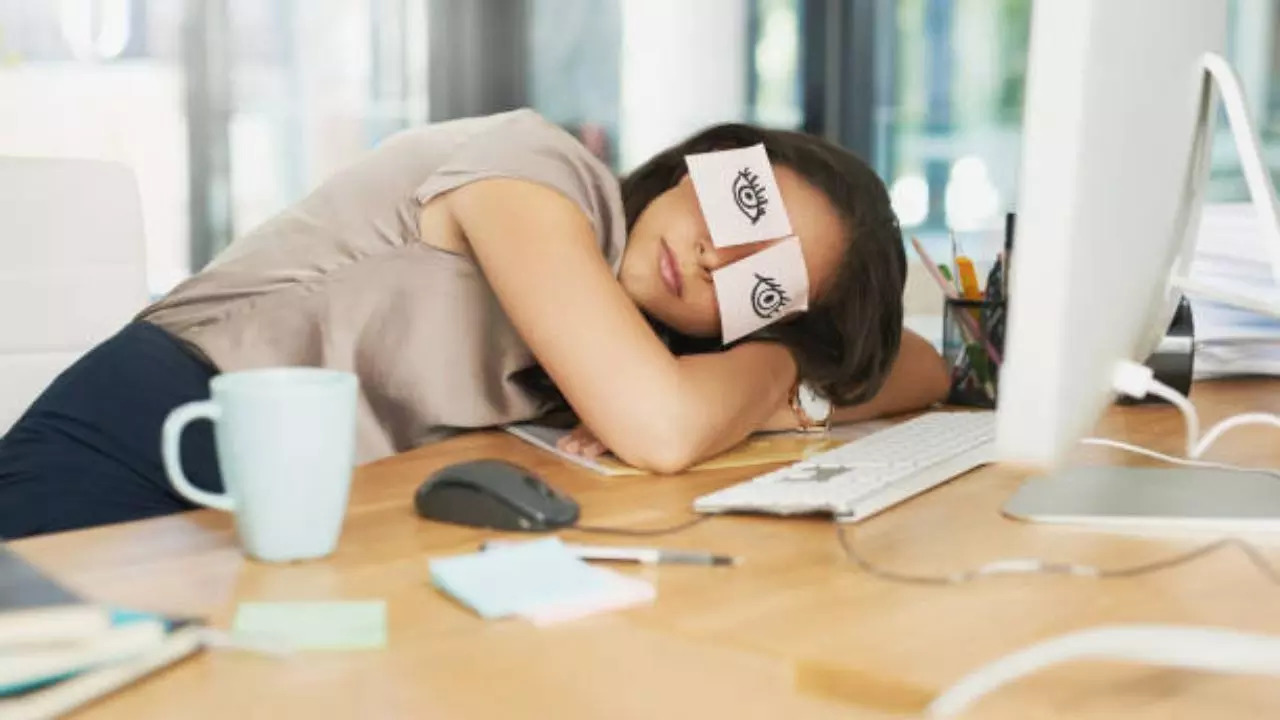Daytime sleepiness is affecting the physical and mental health of Americans: they suffer from heart disease, diabetes, obesity, stress and anxiety.
Insomnia cases in the US: According to a new survey, at least eight in ten Americans do not get enough sleep and have difficulty getting through the day feeling sleepy. The study, sponsored by the American Academy of Sleep Medicine says that at least 54 percent of adults in the United States are sleep deprived, a condition that can cause serious effects on physical and mental health.
“Daytime sleepiness is more than just an inconvenience: It can affect our ability to function as well as possible, affecting everything from work productivity to personal relationships,” said Dr. Alexandre Abreu, a sleep specialist and spokesperson for the American Academy of Sleep Medicine.
According to the online survey of more than 2,000 adults conducted last month, daytime sleepiness is having a major impact on overall health and well-being. Nearly half, 47 percent, of respondents said it hinders their productivity, making it difficult to concentrate and complete work efficiently. Additionally, a third or 31 percent said sleepiness is affecting the quality of their work, a complaint voiced more frequently by men than women.
The survey also resulted in nearly 35 percent of respondents saying they see effects of drowsiness on their memory and mental recall, along with 16 percent saying it affects their reaction time while driving. However, almost a quarter, or 24 percent, said it affects their relationships with family and friends.
“These statistics paint a clear picture of the widespread impact of daytime sleepiness,” Abreu said in a news release.
Why are they Americans struggle to sleep well?
According to experts, poor sleeping habits, stress, and conditions that disrupt people’s internal sleep-wake schedule, such as shifts at work, cause many cases of insomnia and excessive daytime sleepiness.
However, sometimes the cause is a disorder, such as obstructive sleep apnea, restless legs syndrome, narcolepsy, or a mental disorder. Other reasons include emotional or mental distress such as sadness or worry, feeling too hot including hot flashes or night sweats, body pain or nightmares.
How much sleep does it take to have a healthy body and mind?
As per prescribed guidelines, adults should get at least 7 to 9 hours of uninterrupted and regulated sleep at night. Those who sleep less than seven hours may have more health problems than those who sleep more. Doctors say that getting less sleep is linked to an increased risk of conditions such as:
- heart disease
- Stroke
- Diabetes
- Mood disorders
- Obesity
Sleep-related problems cost Americans about $16 billion a year in medical bills, according to some estimates.
How to sleep regularly?
Some ways to get sound sleep include:
- Create a proper sleep routine.
- Turn off television, computers, and other blue light sources an hour before bedtime.
- Limit caffeine and alcohol consumption.
- Avoid large meals at night.
- Avoid afternoon naps
- Exercise regularly
- Make your bedroom comfortable
- Manage stress
Disclaimer:
The information contained in this post is for general information purposes only. We make no representations or warranties of any kind, express or implied, about the completeness, accuracy, reliability, suitability or availability with respect to the website or the information, products, services, or related graphics contained on the post for any purpose.
We respect the intellectual property rights of content creators. If you are the owner of any material featured on our website and have concerns about its use, please contact us. We are committed to addressing any copyright issues promptly and will remove any material within 2 days of receiving a request from the rightful owner.

